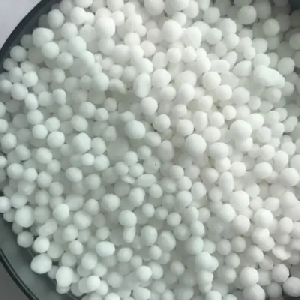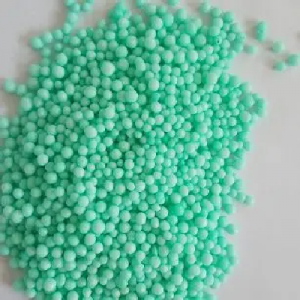-

urea granular ammonium sulphate fertilizer
Urea, also known as carbamide, is a diamide of carbonic acid with the molecular formula CO(NH2)2. It is mainly used in industry and agriculture. In industry, urea accounts for 28.3% of usage: melamine resins, melamine, melamine acid, etc. It can also be used as a feed additive and in the pharmaceutical and cosmetics industry. In agriculture, urea is mainly used to produce compound fertilizers or applied directly as a fertilizer, Urea’s agricultural use accounts for over 70% of its total use.
-

Granular or Powder Fertilizante Nitro-sulfur-based NPK 15-5-25 Compost Fertilizer
It is a compound fertilizer with ammonium nitrate as the nitrogen source, adding phosphorus, potassium and other compound fertilizer raw materials to produce a high concentration of N, P, K compound fertilizer. Its products contain both nitrate and ammonium nitrogen. The main products are ammonium nitrate phosphorus and ammonium nitrate phosphorus potassium. It is an important agricultural fertilizer, mainly suitable for tobacco, corn, melon, vegetables, fruit trees and other economic crops as well as alkaline soil and karst terrain areas, the application effect in alkaline soil and karst terrain areas is better than urea.
-

NPK17-17-17
Compound fertilizer national standards stipulate that compound fertilizers containing chlorine must be marked with chloride ion content, such as low chloride (containing chloride ion 3-15%), medium chloride (containing chloride ion 15-30%), high chloride (containing chloride ion 30% or more).
Appropriate application of wheat, corn, asparagus and other field crops is not only harmless, but also beneficial to improve yields.
In general, the application of chlorine-based compound fertilizer, tobacco, potatoes, sweet potatoes, watermelon, grapes, sugar beets, cabbage, peppers, eggplant, soybeans, lettuce and other crops resistant to chlorine have adverse effects on yield and quality, seriously reducing the economic benefits of such cash crops. At the same time, chlorine-based compound fertilizer in the soil to form a large number of chlorine ion residues, easy to cause soil consolidation, salinization, alkalinization and other undesirable phenomena, thus deteriorating the soil environment, so that the crop nutrient absorption capacity is reduced.




